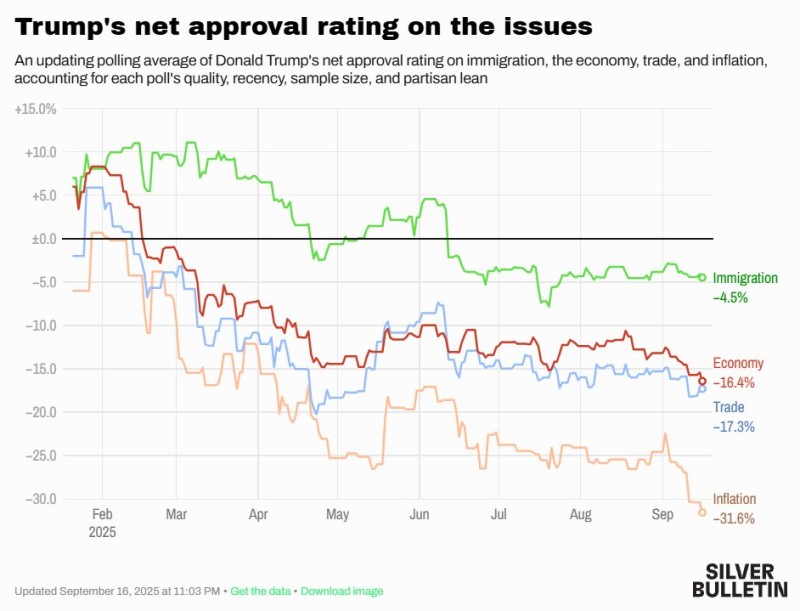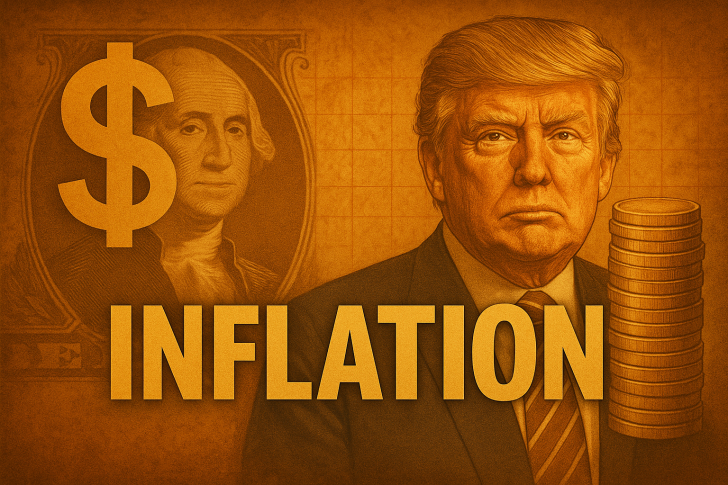Fresh polling numbers paint a troubling picture for Donald Trump's standing on key economic issues. His net approval ratings have taken a sharp dive across multiple economic categories, with inflation emerging as his biggest political liability. While immigration remains relatively stable as a talking point, Americans are increasingly dissatisfied with his approach to the economy and trade. Political analyst Noah Smith suggests this creates an opening for Democrats to connect tariffs with rising prices in their campaign messaging.
Inflation Becomes Trump's Achilles' Heel
The data tells a stark story about inflation's impact on Trump's political fortunes. As trader Noah Smith has noted, this weakness could be exploited by connecting tariff policies to rising consumer costs.

His net approval on this critical issue has crashed to -31.6%, marking the lowest point across all measured categories. This dramatic decline, which gained momentum in early 2025, underscores how deeply concerned voters remain about rising costs at the grocery store and gas pump. For many Americans, inflation isn't just an economic indicator—it's a daily reality that hits their wallets hard.
Economic and Trade Approval in Decline
Trump's broader economic credentials are also taking a beating. His approval rating on general economic management sits at -16.4%, while trade policy approval has fallen to -17.3%. Both metrics have been sliding consistently since spring, reflecting growing skepticism about whether his tariff-heavy approach actually benefits ordinary Americans. The sustained downward trajectory suggests these aren't temporary dips but rather a fundamental shift in public perception.
Immigration Remains a Relative Bright Spot
In contrast to his economic struggles, Trump's immigration stance maintains relatively neutral ground with a net approval of -4.5%. This issue has occasionally drifted into positive territory throughout the year, explaining why it continues to feature prominently in his political messaging. Immigration represents one of the few policy areas where Trump still connects with a meaningful portion of the electorate, making it a natural focal point for his political strategy.
Democratic Strategic Opportunities
The polling weakness creates potential openings for Democratic strategists. By drawing connections between Trump's tariff policies and rising consumer prices, Democrats could tap into voters' frustration with inflation. Whether or not economists agree on the direct causal relationship, the political perception that tariffs drive up household costs could resonate with voters feeling pinched by higher prices. This messaging strategy could prove particularly effective if packaged as protecting families from unnecessary financial burden.
Looking Ahead
These approval numbers expose Trump's vulnerabilities on the issues that matter most to voters' daily lives. With deep negative ratings on economy, trade, and especially inflation, his political opponents have clear targets for their messaging. The challenge will be whether they can effectively connect policy positions to kitchen table concerns. As the midterm season approaches, Trump's economic approval ratings suggest he'll need to find new ways to convince voters that his policies will improve their financial situation rather than make it worse.
 Saad Ullah
Saad Ullah

 Saad Ullah
Saad Ullah


